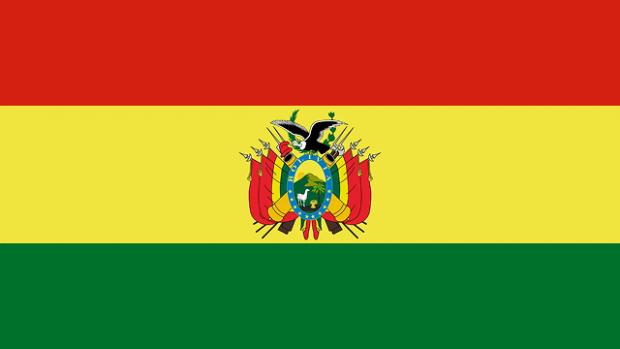
Breaking News
 UN, Gates digital ID, fast payments, data sharing 50-in-5 campaign hits 30 countries
UN, Gates digital ID, fast payments, data sharing 50-in-5 campaign hits 30 countries
 Health Benefits of Topical Magnesium Lotions and Sprays
Health Benefits of Topical Magnesium Lotions and Sprays
 Big Banks Prepare for Compliance Based Currency
Big Banks Prepare for Compliance Based Currency
 Stop 'Rooting For Failure' In Gaza: Vance In Israel Lambasts Western Media
Stop 'Rooting For Failure' In Gaza: Vance In Israel Lambasts Western Media
Top Tech News
 Future of Satellite of Direct to Cellphone
Future of Satellite of Direct to Cellphone
 Amazon goes nuclear with new modular reactor plant
Amazon goes nuclear with new modular reactor plant
 China Is Making 800-Mile EV Batteries. Here's Why America Can't Have Them
China Is Making 800-Mile EV Batteries. Here's Why America Can't Have Them
 China Innovates: Transforming Sand into Paper
China Innovates: Transforming Sand into Paper
 Millions Of America's Teens Are Being Seduced By AI Chatbots
Millions Of America's Teens Are Being Seduced By AI Chatbots
 Transhumanist Scientists Create Embryos From Skin Cells And Sperm
Transhumanist Scientists Create Embryos From Skin Cells And Sperm
 You've Never Seen Tech Like This
You've Never Seen Tech Like This
 Sodium-ion battery breakthrough: CATL's latest innovation allows for 300 mile EVs
Sodium-ion battery breakthrough: CATL's latest innovation allows for 300 mile EVs
 Defending Against Strained Grids, Army To Power US Bases With Micro-Nuke Reactors
Defending Against Strained Grids, Army To Power US Bases With Micro-Nuke Reactors
Bolivia's New President Backs Blockchain To Tackle Government Corruption

The Associated Press reported Monday that Paz defeated rival Jorge Quiroga 54.5% to 45.5% and is set to take office on Nov. 8. Paz won Sunday's runoff on a centrist, pro-market message and inherits an economy strained by fuel shortages and a US dollar squeeze, according to the AP.
For crypto observers, Paz's government plan includes two concrete proposals related to digital assets and blockchain.
Blockchain joins Bolivia's reform agenda
The first is a plan to use blockchain and smart contracts in public procurement.
The Partido Demócrata Cristiano's official 2025 government platform program pledges the application of blockchain technologies and the use of smart contracts to remove discretion from state purchasing. The proposal aims to tackle corruption in state purchasing by automating some contract processes.
The second is a program to let citizens declare crypto assets into a new foreign-exchange stabilization fund, seeded through an asset-regularization drive that explicitly lists crypto.
Such funds are reserve pools used to steady the currency and pay for essential imports when US dollars are scarce, according to the US Treasury Department. Including crypto broadens what the government can tax or quickly convert to hard currency without holding volatile tokens.
Paz looks crypto-pragmatic, but is not a Bitcoin maxi.
His platform frames blockchain as an anti-corruption tool and treats declared crypto assets as part of a one-off asset regularization push to capitalize a currency stabilization fund.
There's no evidence yet of a policy to adopt BTC at the national level, hold it in reserves or to roll out retail legalization.
Bolivia embraces digital currency payments
Cointelegraph has tracked Bolivia's crypto policy turn since 2024. The country's central bank, Banco Central de Bolivia, lifted an operational ban on crypto transactions in June 2024, authorizing regulated electronic channels and signaling a modernization of payments. Months later, average monthly digital asset trading doubled versus the prior 18-month average, the bank said.

 SpaceX Heat Shield and Starship Mass Production
SpaceX Heat Shield and Starship Mass Production

